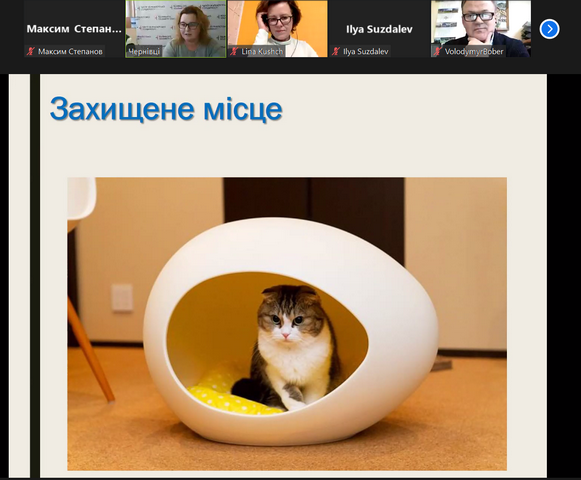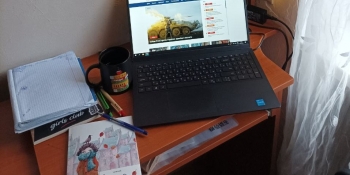Journalists who tell the stories of victims are prone to emotional burnout. How to prevent this, psychologist-practitioner / deputy head of the Chernivtsi branch of the Ukrainian Union of Psychotherapists Nataliya Oksina told during the open lecture entitled What to Do in Case of Apathy to Work. The lecture was read yesterday online for the active members of the National Union of Journalists of Ukraine (NUJU), the teams of the Journalist Solidarity Centers.
This meeting took place within the framework of activity of the network of Journalist Solidarity Centers, which provides assistance to Ukrainian journalists. The participants in the open lecture received the important information on how to protect themselves from emotional burnout.
“We cannot notice professional deformation, our loved ones notice it. However, only we can notice emotional burnout in ourselves. “Emotional burnout is an emergency reaction to a series of events that accumulate inside us,” noted Nataliya Oksina.
According to the psychologist, the World Health Organization has recognized emotional burnout as a disease.
The causes of emotional burnout can be “forced” professional communication, a high level of professional stress, a lack of recognition, insufficient monetary reward, an unfavorable climate in the team, high self-sacrifice, difficulties in communication, too high level of empathy for the interlocutor, as well as a strong dependence on external opinion.
Among the signs of emotional burnout are fluctuations in body weight, exacerbation of chronic diseases, exhaustion, sleep disturbances, increased irritability, disappointment in work and in personal life, feelings of hopelessness, unmotivated anxiety, weak emotional response, helplessness, making changes to the work schedule, violation of the priority in executing tasks, difficulties in decision-making, emotional outbursts, reduced productivity, etc. Emotional burnout can be “contagious,” transmitted to colleagues at work.
To prevent emotional burnout, you need to expand your circle of communication, cultivate extracurricular interests, hobbies, develop a sense of humor, a healthy attitude to competition, participate in professional development programs, etc. It is important to separate working time from non-working time, up to the use of special rituals and the designation of working and non-working clothes.
“It’s also important to have a safe place where you can feel comfortable and spend some time there. If you don’t have such a place, invent it, and mentally visit it,” advises the psychologist.

























